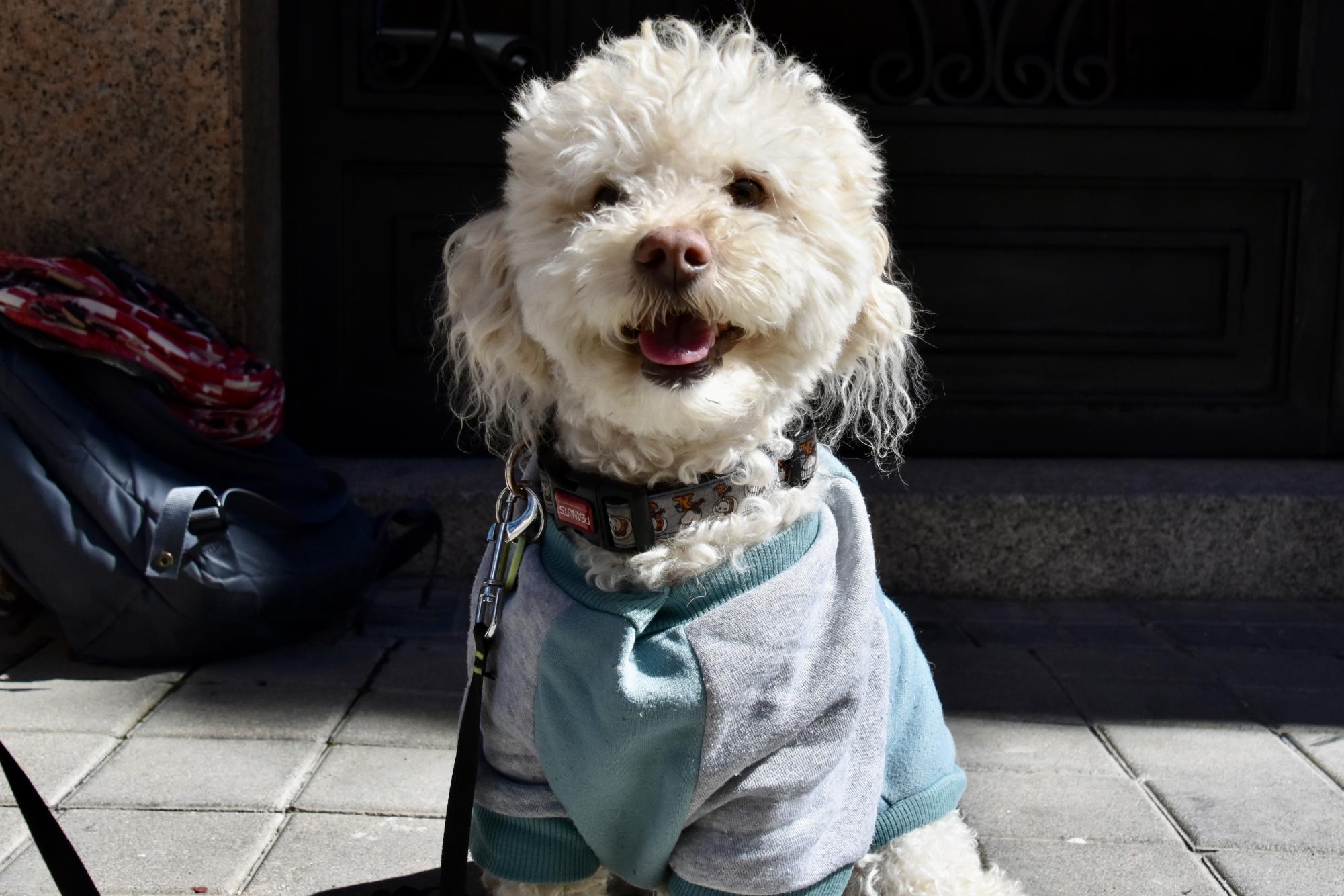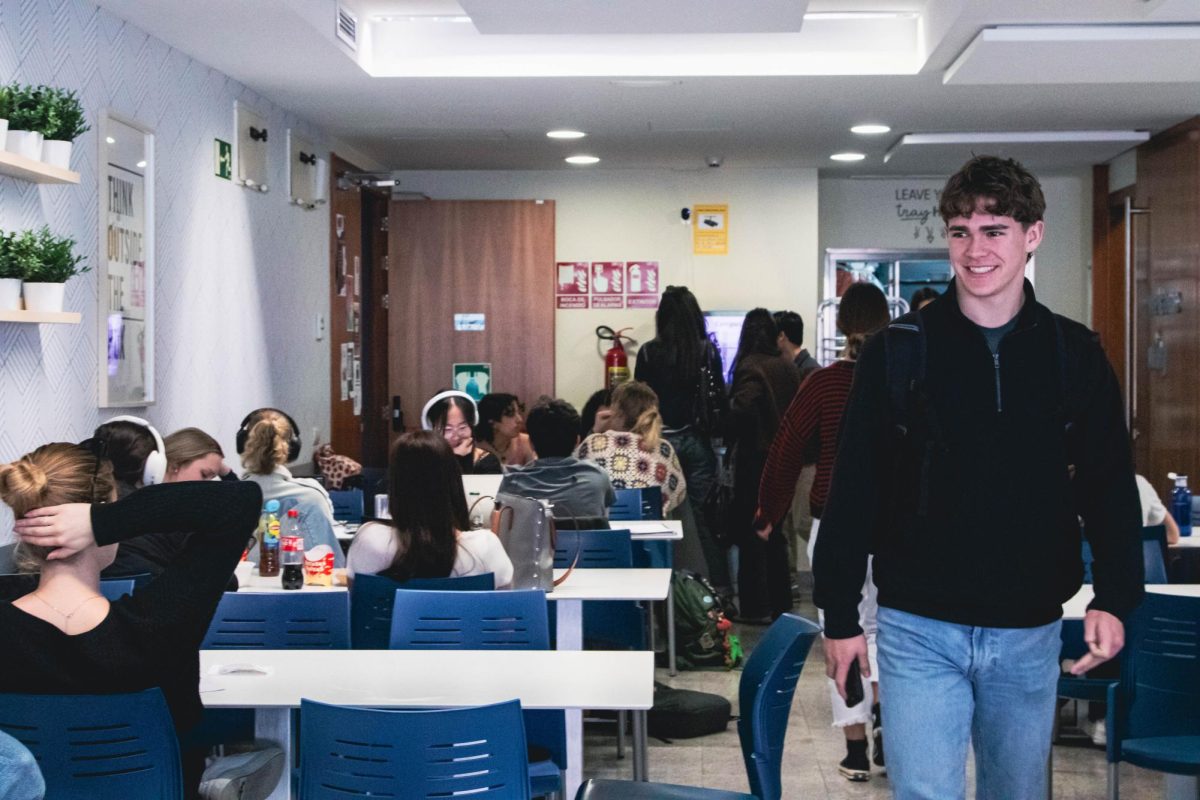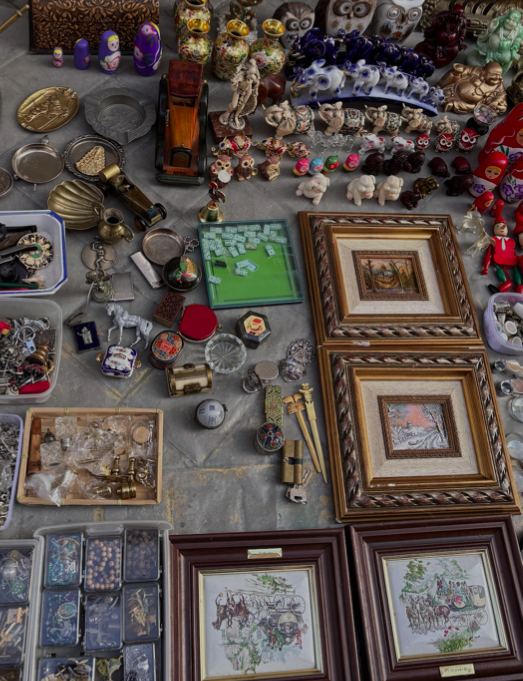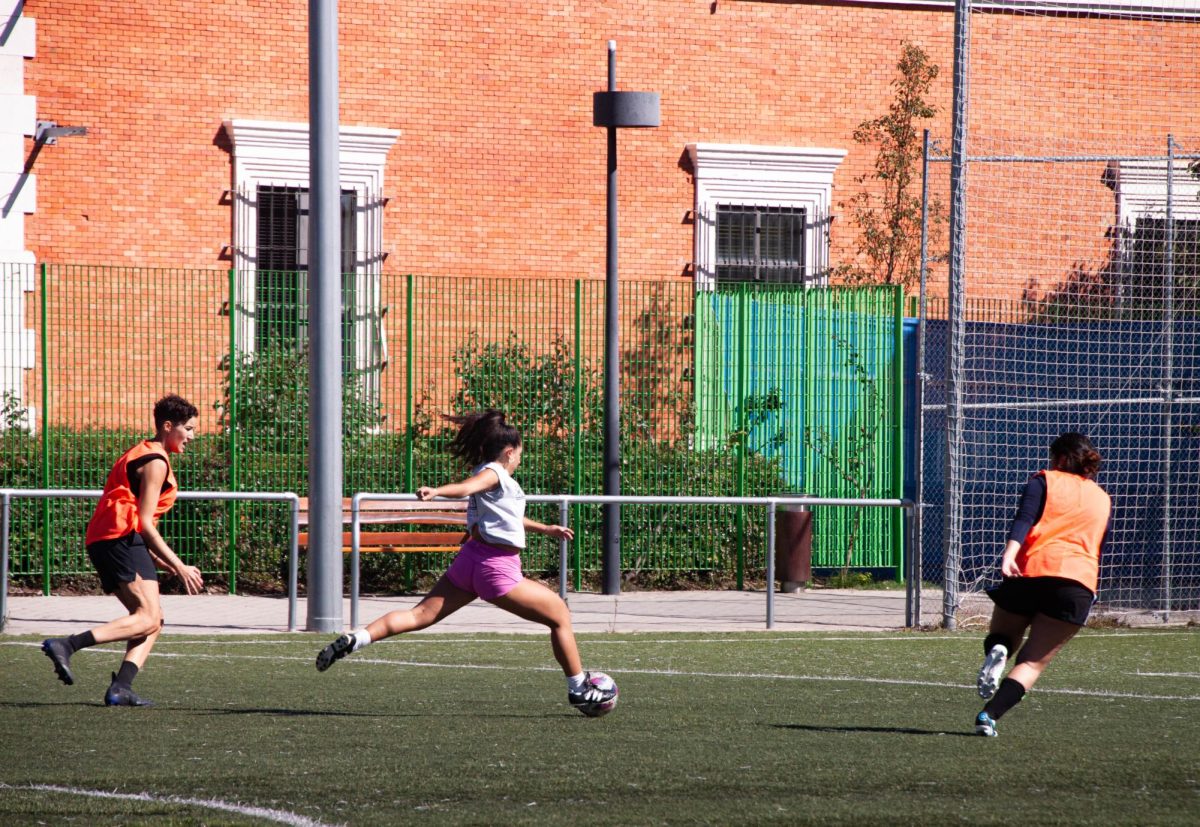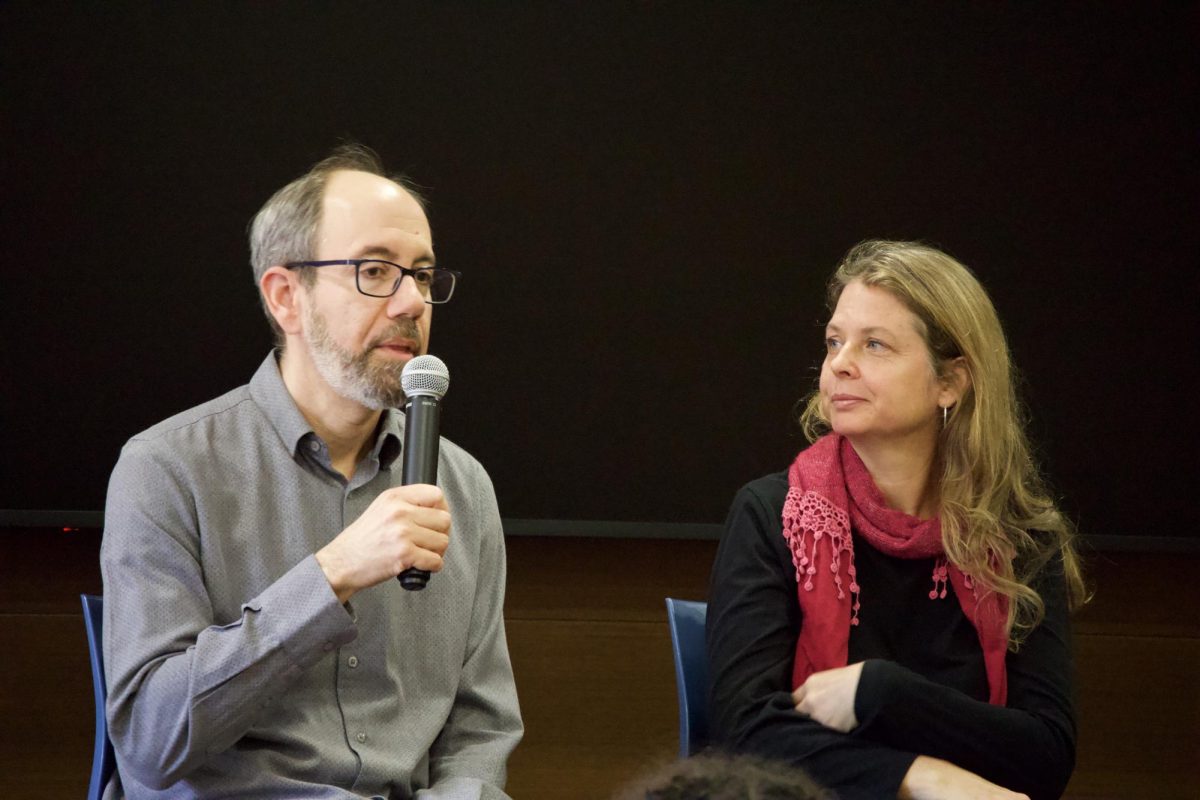Having never been to Spain, Claire Genova expected to be surprised by several aspects of Spain’s unique culture – the food, the music, and maybe even the transportation. But she didn’t expect that list to include dogs. One Thursday afternoon, she ventured to a small coffee shop tucked away in one of Madrid’s quiet neighborhoods. While waiting in line to order her usual coffee, a black-and-white-spotted Great Dane with a dark blue collar grabbed her attention.
“There was this massive dog, he and his owner just wandered around the cafe, going up to people while they were drinking their coffee,” Genova said. “I feel like people everywhere in Madrid love dogs and are happy having them around.”
There is something to say about the dog-walking – and dog-accessorizing – culture in Madrid.
Going outside, you are guaranteed to see one or more dogs on a walk with their owner and most likely sporting some sort of accessory. Genova is one of many foreign students who have recognized dog-friendliness in Madrid, even in places outside of the parks. Although accessorizing one’s dog seems like an owner’s stylistic choice, some owners dress their pets because of health concerns. Popular pet stores located around Madrid are responsible for constantly providing their dogs with the most updated and stylish accessories. Other stores attract customers with their organic products including dog food and medicine. Nonetheless, one idea remains true: pet owners in Madrid take their dogs very seriously, all the way from fashion to health.
In a local dog treat store, a shopper entered with 7-year-old Olaf, a brown wiener dog sporting a gray knit sweater.
“He only owns two sweaters he puts on when he’s cold, and that’s it,” his owner said. “I don’t do accessories.”
She made it clear that she didn’t purchase Olaf’s sweaters to make a fashion statement. Instead, she prioritizes his health, ensuring he doesn’t get cold in the winter.
That’s when business is brisque at Masco Boutique, a well-known pet store located near Retiro park. “People come in and buy sweaters and raincoats for their dogs, especially the little ones so they don’t get sick,” said the owner, who did not want her name published.
The boutique sells everything from jackets and vests to raincoats and knit sweaters of all colors. In the back on a recent day, a dog groomer meticulously clipped a dog’s bangs.
But the store also keeps an up-to-date website showcasing all its products, which helped during COVID, when many people became first-time dog owners. “Since then, I have only recognized an increase in people who own dogs in Madrid,” the owner said.
Another store, Naturanimal in Justicia, cater’s to dog health: It sells all-natural dog food, treats for gum health, dietary food, and other supplements. It also offers anti-stress medication, dog sunscreen, and eye drops.
On a recent winter day, many of the customers who entered Naturanimal were accompanied by their pets. Lian Hua Khoo Sanchez, an employee, greeted customers with a smile and a wave. After studying in veterinary school, Sanchez began working at Naturanimal only a year ago. Having grown up in Marid, she has recognized a shift in the dog culture and the general relationship between dogs and their owners.
“I think it’s different now,” Sanchez said. “People are more aware of how to treat dogs.”
Since COVID, she recognized an increase in dog ownership given the ownership of a dog was one of the few reasons city residents could leave their home during the strict lockdown period, which lasted more than a month at the start of the pandemic.
“Now, you can see that there are more animals instead of kids around,” Sanchez said. “So people tend to buy more things and be like ‘Oh this is my kid’ even though it is an animal.”
Sanchez regularly has interesting encounters with the dogs of Madrid. “One of our clients, he has this pitbull, and the pitbull has the eyes super blue so he’s allergic to the sun,” she said. “So, he has to wear sunglasses. It’s crazy.”
Emma Niersman, a student from the Netherlands, noticed the fashionable pouches when she arrived in September. “Especially the dachshunds,” Niersman said. “They are all wearing the coats and the sweaters. Also, it’s not even that cold in Madrid.”
